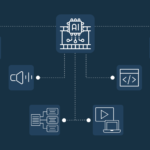In the era of rapid technological advancement, Artificial Intelligence (AI) has emerged as a transformative force across various industries. Among its many applications, AI’s integration into Assisted Network Solutions stands out as a paradigm shift, revolutionizing how networks are managed, optimized, and secured. As businesses and individuals alike demand more seamless and reliable connectivity, AI offers unprecedented capabilities to meet these evolving needs.
The Evolution of Assisted Network Solutions
Assisted Network Solutions encompass a range of technologies designed to enhance network performance, reliability, and security. Traditionally, managing and troubleshooting complex networks required significant human intervention, often resulting in time-consuming processes and occasional inefficiencies. However, with the advent of AI, these challenges are being addressed with remarkable efficiency and effectiveness.
AI-Powered Network Optimization
One of the key areas where AI excels in Assisted Network Solutions is network optimization. Through advanced algorithms and machine learning techniques, AI can analyse vast amounts of network data in real-time, identifying patterns, predicting potential issues, and optimizing network configurations accordingly. This proactive approach not only enhances network performance but also minimizes downtime and improves user experience.
Moreover, AI-driven network optimization goes beyond reactive troubleshooting. By continuously learning from network behaviours and user interactions, AI algorithms can adapt dynamically to changing conditions, ensuring that networks remain optimized and responsive to evolving demands.
Enhanced Security Through AI
Security is another critical aspect of network management where AI is making significant strides. With cyber threats becoming increasingly sophisticated, traditional security measures alone are no longer sufficient to protect networks from potential breaches and attacks. AI-powered security solutions leverage machine learning to detect anomalies, identify potential threats, and respond in real-time to mitigate risks.
By analysing network traffic patterns and identifying deviations from normal behaviour, AI can detect suspicious activities that might indicate a cyberattack, such as malware infiltration or unauthorized access attempts. Furthermore, AI-driven security systems can autonomously implement response actions, such as isolating compromised devices or blocking suspicious traffic, thereby fortifying network defences and minimizing the impact of security incidents.
The Promise of Autonomous Networking
As AI continues to advance, the vision of autonomous networking is becoming increasingly attainable. Autonomous networks are characterized by their ability to self-manage, self-optimize, and self-heal without human intervention. By harnessing AI capabilities, these networks can adapt in real-time to changing conditions, allocate resources efficiently, and mitigate potential issues before they impact performance or security.
The benefits of autonomous networking are manifold. They not only reduce operational overhead and reliance on human intervention but also enable networks to scale dynamically and adapt to evolving user demands seamlessly. Moreover, autonomous networks have the potential to revolutionize industries such as telecommunications, where the proliferation of connected devices and emerging technologies necessitates a more agile and responsive infrastructure.
Challenges and Considerations
While the integration of AI into Assisted Network Solutions holds immense promise, it is not without its challenges and considerations. Privacy concerns, data security, and algorithmic biases are among the foremost issues that must be addressed to ensure responsible and ethical deployment of AI-powered network solutions. Moreover, as networks become increasingly complex and interconnected, ensuring interoperability and compatibility across diverse environments remains a key challenge for developers and network operators.
Additionally, the human element remains indispensable in the realm of Assisted Network Solutions. While AI can augment and streamline network management processes, human expertise is still essential for strategic decision-making, policy formulation, and addressing complex issues that may fall beyond the scope of AI algorithms.
The integration of AI into Assisted Network Solutions represents a significant milestone in the evolution of network management and connectivity. By harnessing the power of AI, organizations can unlock new levels of efficiency, reliability, and security in their networks, paving the way for a future where connectivity is smarter, more resilient, and more responsive to the needs of businesses and individuals alike.
As AI technologies continue to advance, the possibilities for innovation in Assisted Network Solutions are virtually limitless, promising a future where networks truly become the backbone of the digital economy.
















Leave a comment